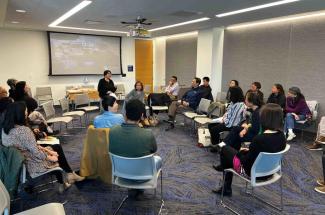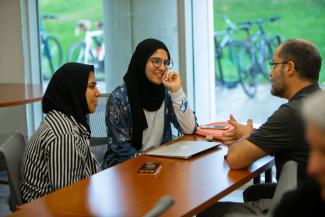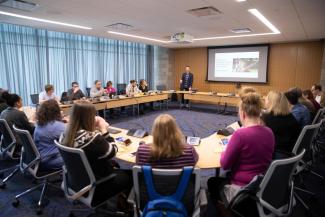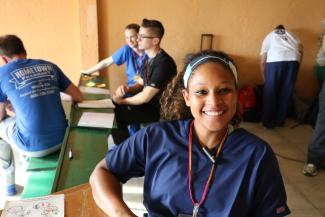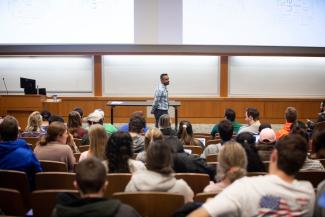Global learning is a critical analysis of and an engagement with complex, interdependent global systems and legacies (such as natural, physical, social, cultural, linguistic, economic, and political) and their implications for people's lives and the earth’s sustainability. It is a life-long learning process that is rooted in intercultural interaction, reflection, and understanding. Through global learning, UK campus community members will 1) become informed, skilled, open-minded, and responsible people who are attentive to diversity across the spectrum of differences, 2) seek to understand how their actions affect both local and global communities, and 3) address the world's most pressing and enduring issues collaboratively and equitably.
Global Learning
Definition of Global Learning Adopted by University of Kentucky International Advisory Council on January 24, 2024
UK's Global Learning Outcomes
Given that UK’s degree programs aspire to prepare our graduates for the global communities in which they will live and work, the following overarching learning outcomes serve as guidelines for ensuring that international perspectives are infused across the curriculum of all degree programs.
While UK Core explicitly addresses global competencies, it is expected that the undergraduate majors and graduate/professional programs will build on this foundation, considering the transnational context and global networks of their own disciplines. UK’s globally competent graduates will be able to:
KNOWLEDGE
- Analyze the global context of their chosen profession, and apply perspectives gathered from a global community of scholars as part of their professional expertise.
- Describe how, in multi-cultural or multi-national situations, individual and collective decision-making, including in international bodies, often generates ethical dilemmas, conflicts, and trade-offs that must be thoughtfully evaluated, weighed, and resolved.
- Explain how local features (economic, cultural, social, political and religious) of urban or rural communities, ethnicities, nations and regions are often linked to global trends, tendencies, and characteristics that often mutually shape one another.
SKILLS
- Analyze the forces shaping international events, both now and in the past.
- Demonstrate effective and appropriate communication, interaction, and teamwork with people of different nationalities and cultures.
- Implement diverse frames of reference to critically examine and address complex global problems.
- Use world language skills and/or knowledge of other cultures to seek access to information, engage in experiences, and document new understandings.
ATTITUDES
- Demonstrate respect and support for the world community, including attention to internationally recognized human rights, self-determination, the welfare of others, economic development and international trade, and sustainability of natural and constructed systems.
- Describe the role that cultures, including their own, play in influencing individual behavior, attitudes, and beliefs including an awareness of the complexity of cultural systems and their associated power dynamics.
- Value difference and demonstrate openness to ambiguity and unfamiliarity.
- Seek clarification and explain the benefits of being in the position of a learner when encountering others in multi-cultural or global environments.
- Actively seek out international or intercultural opportunities.
- Articulate how personal and social responsibility has been demonstrated through informed and responsible involvement with diverse communities and real-world challenges.
- Evaluate potential consequences of individual and collective interventions.
